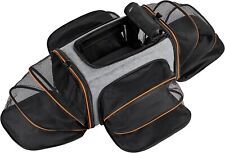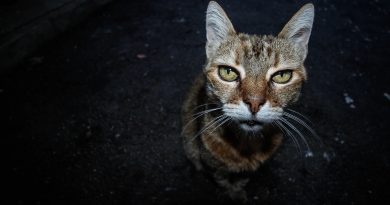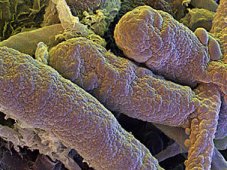Disabled Cats: Caring for a 3-Legged Cat or Amputee

Three-legged cats need help grooming areas that would normally be groomed by the now-missing leg. Don’t expect a recent amputee to be ‘back to normal’ immediately, but don’t be over-protective. He must work out his new limitations and how to compensate for a missing leg. He must build up additional strength in his other limbs. He can’t do this if you carry him everywhere.
After an initial adjustment period, which is sometimes painful to watch, he will probably be able to jump and climb much as before. If he has lost a hind leg, he may not be able to jump as high. If he has lost a foreleg, he may find landing more difficult, especially when jumping down from a high place. At first he will make some mistakes and you can expect some minor (hopefully) injuries, but he will quickly work out his own limitations and even find alternative routes to favorite places.
It is important that a three-legged cat is not allowed to become obese because he has fewer limbs on which to distribute his weight. It is also important that he get exercise, gentle at first to help him adapt to his condition and more active later on to strengthen his remaining limbs. Most 3 legged cats adapt well enough to become as active and energetic as they were before losing the leg – but you can’t expect this to happen overnight and it may be painful to watch him adjusting.
Some kittens lose a limb very early on because the umbilical cord get tangled round it and stops it from developing, because the mother cat is inexperienced and mishandles the kitten (sometimes biting off the kitten’s paw due to a fault in her grooming behavior) or through some other birth defect which caused the limb to be deformed. If the leg is amputated early in life, the kitten grows up on 3 legs and doesn’t know any different. There are very many happy and healthy cats in the world whose nickname is "tripod".
A caring owner can think of other ways in which to help a disabled feline companion, but beware of being overprotective. A disabled cat still requires some semblance of independence to allow it to fulfill that inner ‘catness’ that we love in our feline friends. Most seem unaware of their disabilities and they do not expect life to make allowances, but a helping hand and some adjustments to their lifestyle and perhaps your own lifestyle will ensure a disabled cat has a healthy, happy and safe life.













